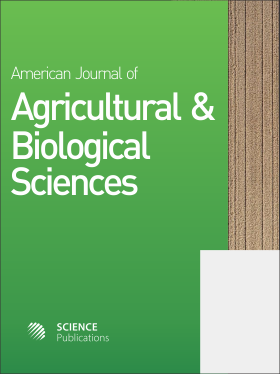Biofortification of Food with Microelements
- 1 Institute of Inorganic Technology and Mineral Fertilizers, Faculty of Chemistry, Wroclaw University of Technology,UL-Smoluchowskiego 25, 50-372 Wroclaw, Poland
- 2 Department of DentofacialOrthopaedics and Orthodontics, Faculty of Dentistry, Medical University of Wrocław, Krakowska 26, 50-425 Wrocław, Poland
- 3 Department of Organic Chemistry, Faculty of Pharmacy, Medical University of Wrocław, Nankier Sq. 1, 50-140 Wrocław, Poland
Abstract
Problem statement: Recently a particular attention was paid to the issue of microelement hunger, also termed hidden hunger. The problem was of global significance, since was related with the public health and concerns over 2 billion people. Approach: The study discusses the state of the art in the research on food biofortification as the sustainable solution to cope with micronutrient deficiencies. Enrichment of food with microelements seems to be the rational method of preventive, not interventionist character. Consuming such food should reduce the intake of mineral supplements containing inorganic salts, whereby microelements posses low bioavailability. Different methods of increasing the density of microelements in food of plant and animal origin (agronomic and biotechnological) are discussed. Results and Conclusion: Using microelements introduced with either fertilizers or feeds in the form which is highly bioavailable should yield plant and animal products containing higher levels of these constituents. Introducing microelements bound to a biomass which serves as a biological carrier is possible by means of the process of biosorption. The method is widely discussed in the literature as wastewater treatment process in which metal cations are removed from effluents and bound with the biomass by postulated ion exchange mechanism. The same process can be used to enrich the biomass with metal cations of nutritional significance. Studies on laying hens fed with new feed additives produced by biosorption yielded higher densities of Fe, Zn, Mn and Cu in eggs content, as compared with the control group which was fed with diet containing inorganic form of microelements.
DOI: https://doi.org/10.3844/ajabssp.2011.544.548

- 6,601 Views
- 7,118 Downloads
- 15 Citations
Download
Keywords
- Micronutrients
- microelement malnutrition
- biofortification
- supplementation
- nutritional quality
